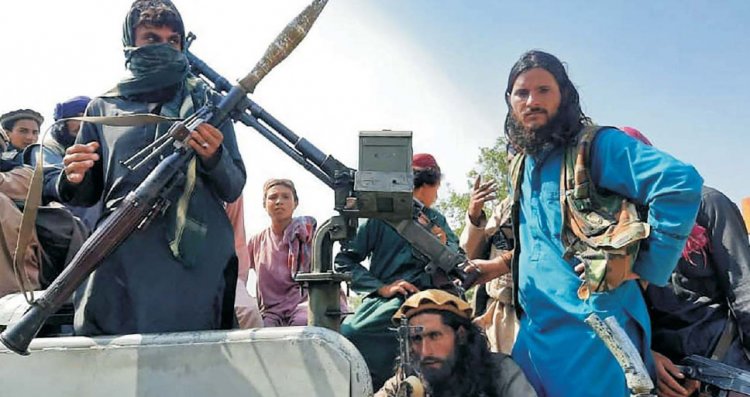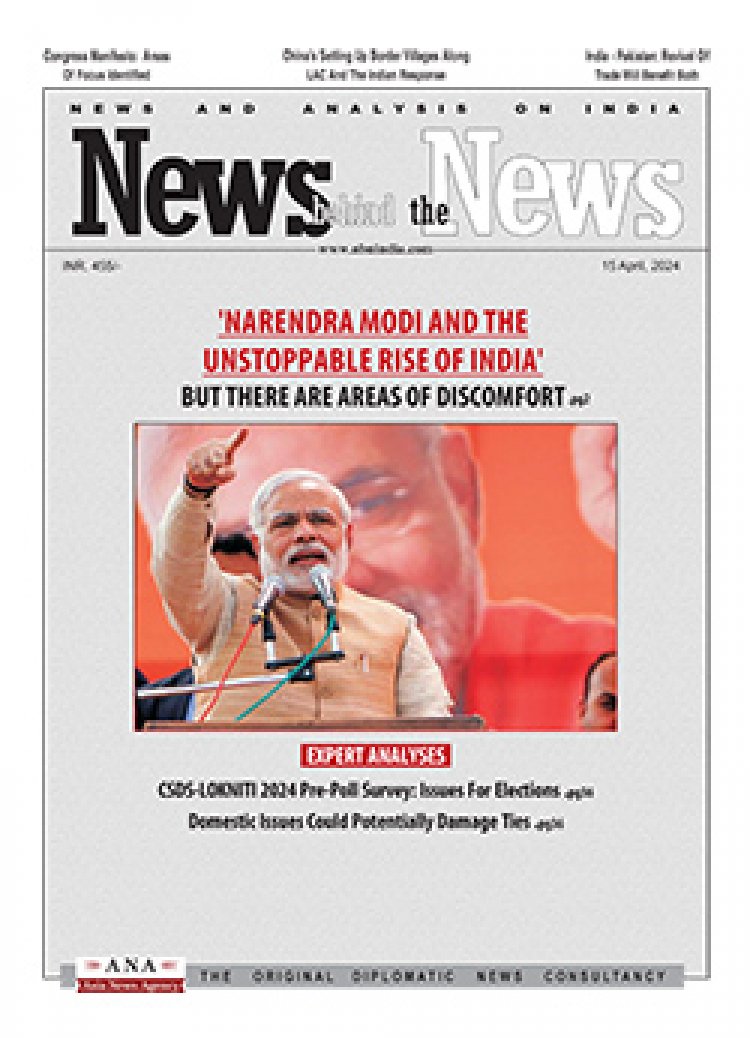Taliban and its New, Jihadist Enemies
Amulya Ganguli

The latest terror attack in Kabul has highlighted a hitherto hidden aspect of the malignant jihadist enterprise. It is that there are Islamic fundamentalists who are not pleased with the Taliban’s success in Afghanistan. As one of them said, the road to Islamism does not, or should not, “pass through the hotels of Qatar”.
It is the Taliban’s negotiated settlement with the US which has irked the more extreme sections of the militants, who want a battle for enforcing the Shariat on the world to be won on the battlefield. Otherwise, it loses its validity and becomes prone to dilution. Hence, the act of terrorism in Kabul to underline their displeasure.
What this disturbing turn of events shows is that the belief that the international community may learn to live with a “moderate” Taliban may prove to be erroneous because the Taliban’s enemies are now known to include not only the kafirs (infidels) of the West, but also other jehadists who have come to regard the Taliban as apostates. The kafirs will have to rework their strategies, therefore, because all the worst fears of the mess in Afghanistan are coming true.
Up until now, some of the fears related to the Chinese concerns about their Belt and Road Initiative and the Pakistani uncertainty about the impact of the Taliban’s zealotry on Pakistan’s home-grown Islamists, the Tehreek-e-Taliban, infamous for the killing of more than 100 children in a Peshawar school, which made Pakistan vow (untruthfully, as it turned out) not to distinguish any longer between the “good” terrorists and the “bad” terrorists.
Till the massacre of the children, Pakistan regarded as “good” those terrorists (of the Lashkar-e-Taiba and Jaish-e-Mohammed, for instance) who were anti-Indian. Now, in which category will Pakistan place the Taliban if they raise the issue of a Pashtunistan which will call for eradicating the Durand Line to unite the Pashtuns of both Pakistan and Afghanistan ?
As for the rest of the world, the Taliban are a group which cannot be trusted if only because its worldview is diametrically opposed to that of the non-Muslim international community. Although the Taliban has said that women can go to school or to offices as long they wear the all-enveloping hijab covering them from head to toe, it is obvious that the freedom they had known during the last 20 years of a non-denominational regime has come to an end. Now, under pressure from the more bigoted jehadis of the Islamic State of Khorasan (IS-K), the Taliban may begin to backtrack from their promise to let the women go about more or less freely.
But the survival of civil liberties in Afghanistan is not the world’s primary concern. Of greater interest is, first, the country’s survival in one piece and, secondly, to see whether it will again become a hotbed of terrorism. It cannot yet be assessed how serious is the challenge posed to the Taliban by the remnants of the Northern Alliance (NA) which is led by Afghanistan’s self-appointed caretaker president, Amrullah Saleh, and the son of the NA’s earlier leader, Ahmed Shah Masoud.
Saleh’s resolve not to let Afghanistan become Talibanistan will be widely admired and endorsed, but whether he can put up a fight from his Panjshir stronghold is open to question. It is doubtful whether he has enough men and armaments to take on the Taliban at a time when their arsenal has been replenished by the guns and vehicles left behind by the Americans.
While India used to back the NA with moral and material support before Ahmed Shah Masoud was killed by the Al-Qaeda, it is unlikely to do so now when it is treading extremely carefully in the quicksands of the new Great Game involving China and Pakistan (with Russia, Iran and Turkey watching from the sidelines) unlike the 19th century when the main players were Great Britain and Czarist Russia.
Of the five players at present – two major and three minor - it is possible that the Taliban will prefer China because of its money and muscle power which will keep America and India at bay. Their only hope is that the Taliban will soon become wise to China’s (and its “iron brother Pakistan’s) neo-colonial ambitions to tie up Afghanistan in fresh “shackles of slavery” from which it has just escaped, according to Pakistan prime minister Imran Khan.
Since altruism is hardly a motivating factor in the Great Game of controlling Afghanistan, China will have its eye on the country’s mineral wealth and Pakistan on the strategic “depth” it will provide in the event of a war with India. Their yearning for exercising control will increase if the Taliban is unable to provide stable governance because of their confrontation with IS-K. As a guerrilla force, the Taliban will also be aware that they are not a match for the standing armies of China and Pakistan. Although guerrillas can wear the armies down in the long run, they are vulnerable in the short term.
But the elephant in the room, as before, continues to be terror, exacerbated by intra-jehadist battles conducted mainly by suicide bombers. Moreover, President Biden’s promise to hunt down the killers of the American soldiers and others at Kabul airport means that the US will have to expand its military operations beyond Afghanistan in the search for the mercenaries of IS-K. Although the IS-K has been carrying out attacks on the minority Shias, women, journalists and doctors in Afghanistan, it has functioned in Syria and Iraq as well. The war in Afghanistan and West Asia is by no means over.















